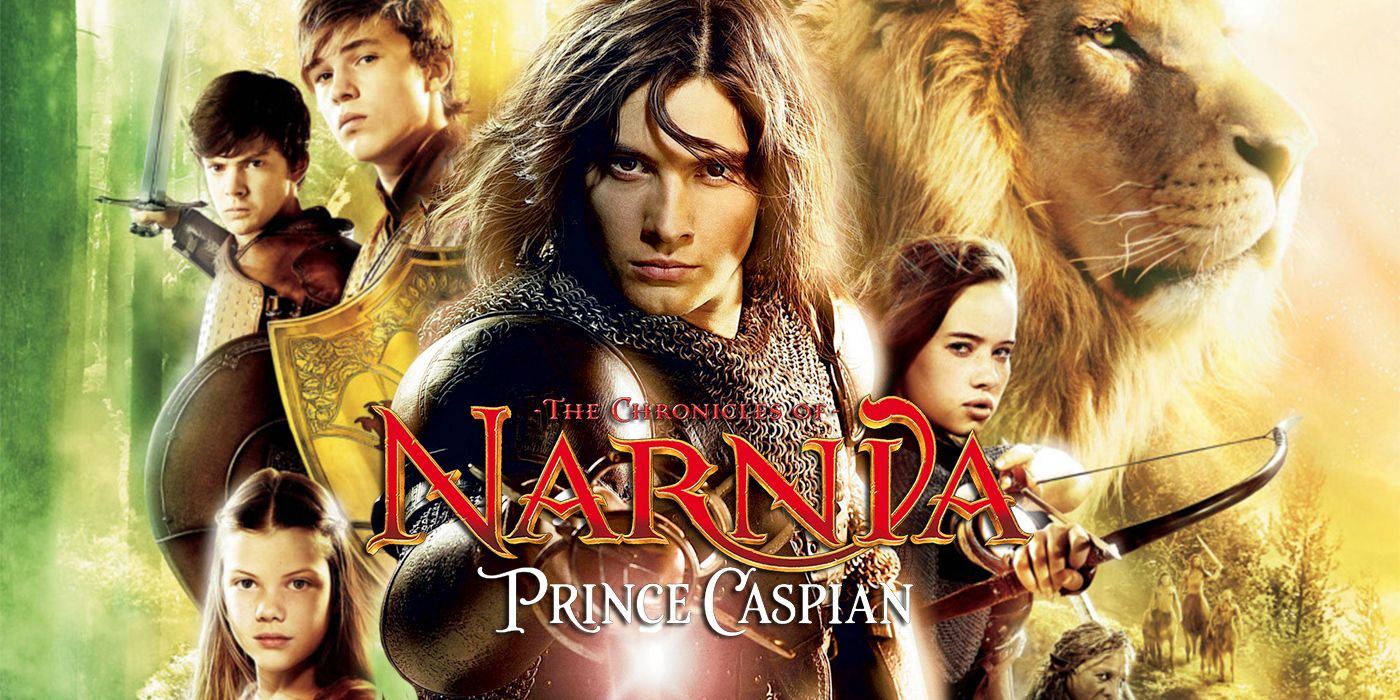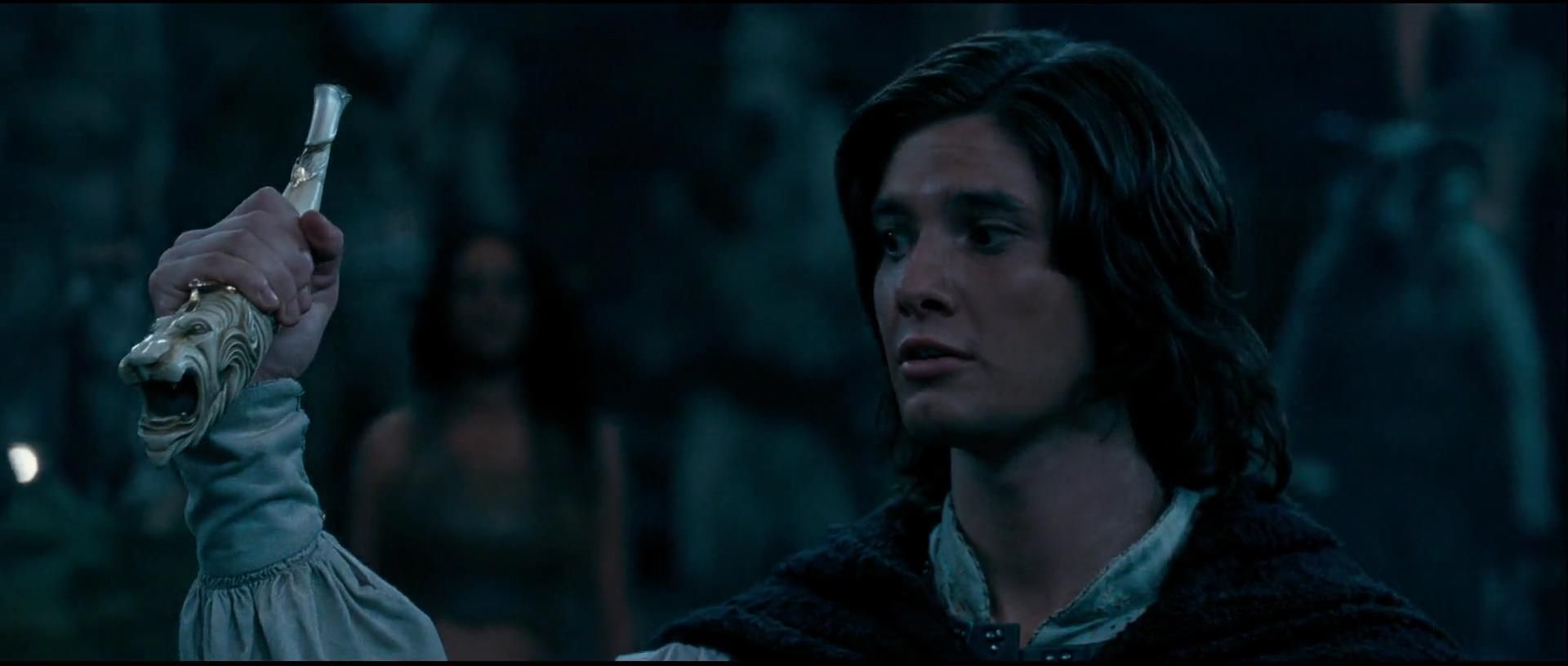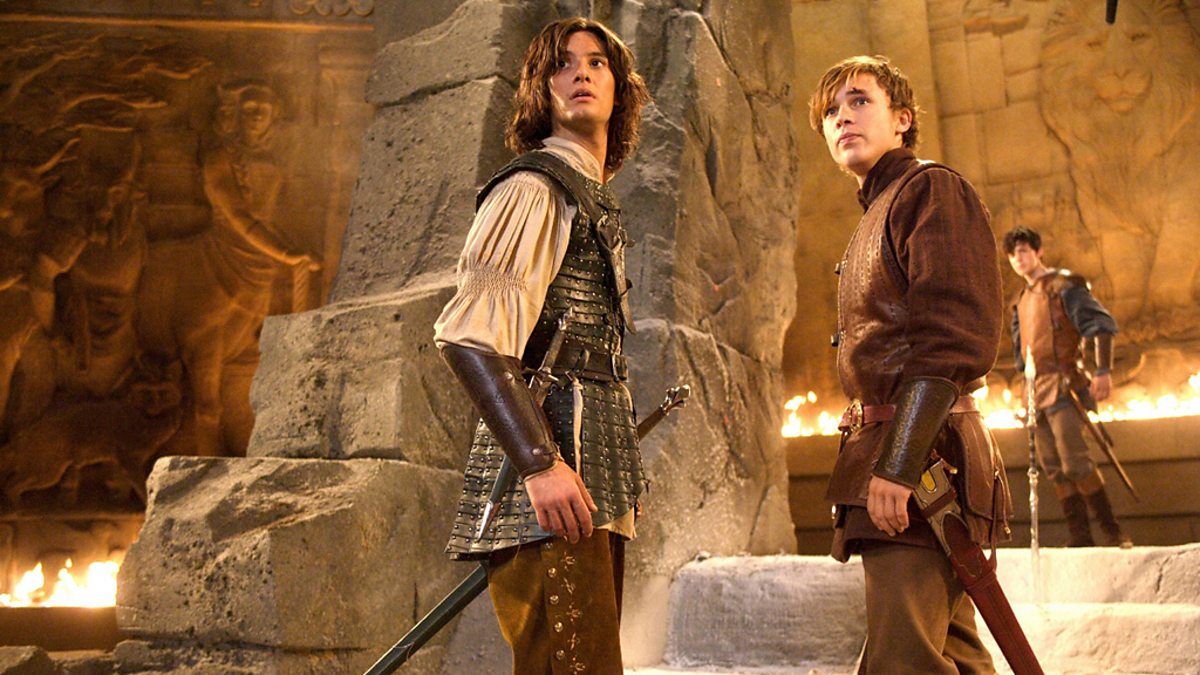To say that C.S. Lewis is one of the world's foremost authorities on philosophy and fantasy is almost an understatement. Yet, out of all of Lewis's literary classics, The Chronicles of Narnia stands out boldly from the rest. Be it the fantastical adventures, the epic battles, the clear moral lessons, or the magical world of Narnia itself, there is something in each of the Narnia tales for everyone. Though the series has been adapted in various capacities, there's no doubt that the most popular (so far) has been the Walden Media/Disney film trilogy by Andrew Adamson. Adamson co-wrote and directed the first two films while serving as a producer on the third, but his clear vision of Narnia has become synonymous with many's imaginations in the same way that Peter Jackson's interpretation of J.R.R. Tolkien's Middle-Earth has with The Lord of the Rings.
While Adamson never finished adapting the Chronicles to the big screen, he left his mark on Narnia in more ways than one. While many of the changes made to the original tales have been heavily criticized, some might not be as bad as you think. Sure, The Lion, the Witch and the Wardrobe changed very little from the original novel, but both Prince Caspian and The Voyage of the Dawn Treader were reworked significantly to make the films more marketable (and to either extend or cut down on time). While we won't be talking about Dawn Treader here, since compared to the book that film doesn't hold up well at all, there is an argument to be made that the Prince Caspian adaptation is actually an improvement on Lewis' original work, as heretical as that may seem.
This is a "hot-take" to be sure, and definitely one that comes with lots of immediate backlash and outrage, but there's a true argument to be made here. In the original Prince Caspian novel, it takes about half the book before our titular hero and the Pevensie children are even united, with most of Caspian's story being told to the characters (and us) via flashbacks by the dwarf Trumpkin. The film deals with the story's chronology a bit differently, instead opting to open with Caspian's daring escape from Miraz, ultimately summoning the old Kings and Queens in a moment of desperation. It's this initial introduction that helps us immediately connect with Caspian, understanding his tragic life from his own point of view rather than through hearsay. Also, switching up the chronology makes this a much more interesting tale to follow.
While Ben Barnes' accent admittedly leaves a lot to be desired, there's something to be said for his earnest portrayal of the would-be Narnian king that helps us better understand Caspian's quest. By making Caspian a teenager instead of a child, the film allows for a more mature story to be told, and one more relatable to modern audiences. What the novel seems to explain as Caspian just being thrust onto the throne by a combination of the Old Narnians and Aslan himself, the film explores the same thread as a "coming of age" story that allows Caspian to grow into a just ruler, rather than somehow simply becoming one. It's this believable character arc that allows him to not just inherit the throne, but earn it.
Here, he takes on the responsibility of leadership of his own volition, partly out of compassion for the Old Narnians and a love for what Narnia could be, and partly out of revenge for his own life and later his father's. Now, some may say that Caspian's hot-headedness towards Miraz is unwarranted or out of character, but that's not really true (see Deathwater Island from The Voyage of the Dawn Treader). Given that his uncle assassinated his father, the king, it's both clear and reasonable that Caspian's anger would boil upon learning the truth, and it actually makes him a more sympathetic character and better ruler as he works through it. When Caspian decides to spare Miraz's life after his duel with Peter (another excellent addition), it proves that he is indeed ready for the throne and that he won't be another spoiled-rotten ruler like his uncle before him.
Of course, Caspian himself isn't the only significant change here. The Pevensie children each have their own adjustments as well. Rather than being stuck on Cair Paravel for half the movie (it's exactly halfway through the book that they find their way off), they quickly discover where they are, rescue Trumpkin, and meet up with Caspian and the Narnians to take down Miraz. While these changes are admittedly very different from the novel, they make the story much more interesting for the screen and allow for more exciting moments of world-building and character development. In possibly the most significant departure from the book, Peter leads a failed raid on Miraz's castle, which goes south quickly, costing the lives of dozens of Narnians. This may be the addition that people hated the most, but it does its job masterfully, raising the stakes high in preparation for the final stand against the Telmarines.
See, since their return to England at the end of the previous film, Peter has had a chip on his shoulder, one that he can't seem to shake. Having to readjust to living as a kid in a non-magical world has clearly gotten to him, especially since he used to be a High King, fighting giants in a fantasy realm. The film adaptation of Prince Caspian slowly strips Peter of his not-so-hidden pride and forces him to readjust his priorities, especially after his own hot-headedness resulted in many easily-avoidable deaths. While this siege ultimately fails because of both Peter and Caspian's foolishness and pride, Peter had only decided to embark on the raid after he gave up waiting for Aslan, frustrated that the Great Lion hasn't yet reached out.
It's worth noting that in the novel, Aslan had reached out by this time and led the children to Caspian, which is one of the best parts of the book. The film, however, trying to teach Peter a valuable lesson in patience, forces him and the rest to wait on their coming savior, a truth Lewis often explored in his non-fiction works regarding Christian theology and philosophy, specifically Mere Christianity. You see, to Lewis, Aslan was simply how Jesus Christ might manifest himself in another world (yes, the "Jesus lion" moniker is accurate), making this change to the source material just as in line with the rest of his works as before.
While the novel makes it clear that Caspian and the Pevensies are fast friends from the moment they meet (which takes place about 60 pages from the end), the realistic rivalry between Peter and Caspian, both trying to be the High King, forces them to become better men and self-sacrificing kings worthy of the throne. This is why Peter is willing to face Miraz in single-combat, and it's why Aslan doesn't return until absolutely necessary. This teachable moment is clearly in the same spirit as Lewis' other lessons from the Narnia series, such as Jill's arc in The Silver Chair or Aravis' in The Horse and His Boy, and fits nicely into this version of the story as these boys learn to become men.
But the boys aren't the only ones who go through changes here. Susan's role in Prince Caspian is remarkably different from her role in the novel, but in a way that makes her less of a nagging older sister and more of the warrior queen many hoped she'd be. Not only does Susan get a lot more archery battle action in here (which is all kinds of awesome), but she has a full character arc of her own. From the moment she's introduced to the moment she leaves Narnia, Susan struggles to find her way between both worlds, and upon learning she and Peter won't ever return to Narnia, finally chooses Earth.
But the film does something even deeper with Susan that only Narnia diehards would catch... Throughout the film, Susan, like Peter and Caspian, goes through her own "coming of age" story. While in England, she's seen catching the eye of a young English boy before they're whisked away into Narnia, and while there, she catches Caspian's eye as well. We won't sit here and defend their unnecessary impromptu kiss at the end, but Prince Caspian does cleverly foreshadow Susan's ultimate fate at the end of Lewis's epic Narnia conclusion, The Last Battle.
For those who don't know, Susan doesn't enter Aslan's Country. Even after the rest of her family dies, she is left behind. It's said in The Last Battle that this is because Susan became too "worldly," focused more on the attention of boys rather than "childish things" like Narnia. While many have criticized Lewis's decision here, it actually falls in line with many of his other religious writings, and if Aslan is to be believed as an interpretation of Christ (who tells the children to get to know him by "another name" on Earth at the end of Dawn Treader), then it figures that Christ's exclusivity would also translate. Thankfully, Lewis stated on multiple occasions that Susan was never too far gone and that there was always hope she'd return to Narnia, something fans and critics have debated for decades.
Other changes to the story include the brief resurrection of Jadis the White Witch, another excellent addition that gives Edmund a chance to prove that he's truly changed, after he dispatches of her when Caspian and Peter could not. Another is that Lucy finds Aslan alone, cutting out all the strange stuff with the gods Bacchus and Silenus from the novel. This is another solid addition that not only allows Lucy to shine, but reinforces her special connection with the Great Lion, which proves pivotal to the Old Narnians' eventual victory. Trumpkin is also given a bit more backstory here, as is the Telmarine General Glozelle, who actually finds redemption by the film's end. This isn't even to mention that Miraz feels like a much more rounded character here than he ever did in the book (though he's still very evil indeed), which helps us to hate him more as we watch him attempt to kill his nephew again and again.
Of course, there are some changes that might not have been for the better (such as that kiss), and some exclusions that were definitely missed (the book further explains Glozelle and Sopespian's betrayal), but overall Adamson and his team did an excellent job at bringing the second tale in The Chronicles of Narnia to life, making it (dare I say) more thoughtful, engaging, and even more exciting than the original novel. If you disagree, that's understandable, we're all Narnia fans here and at the end of the day, Lewis's epic tale will live on a lot longer than any film adaptation ever could, and for good reason. But no matter what, we must remember, as Aslan once said, "things never happen the same way twice."




